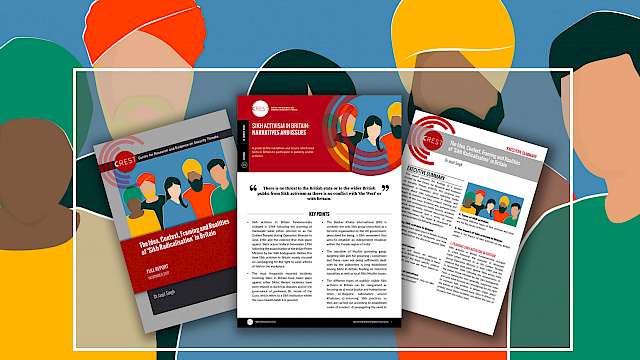One of the most important activities for members of religious groups is to ensure that their tradition survives – transmits – across generations. For many young British Sikhs, new arenas of transmission include university societies, youth camps and the internet, are becoming increasingly important. However, I’ve found that these new arenas existed alongside, not instead of, historical spaces of transmission, such as families and religious institutions.
Families and schools
Sociologists of religion recognise that the family is a key agent of religious socialisation and the main influence on individuals’ religious choices. Indeed, religious identity and conviction are often less a matter of choice and more a matter of who and what one’s parents, friends, neighbours and community practice and profess. I found families were particularly influential in establishing ideas of identity, gender norms and what it meant to be a ‘proper’ adherent of the faith. I also found that, although Sikh families shared some elements, they had their own way of expressing and practising the Sikh tradition. This was influenced by their migration experiences, caste, political affiliation, economic status, and the extent to which they were committed to the faith.
I found families were particularly influential in establishing ideas of identity, gender norms and what it meant to be a ‘proper’ adherent of the faith
Although the influence of family and community is acknowledged, it is important not to present an over-socialised view that leaves little room for subsequent individual development or an under-socialised position that does not fully take the impact of socialisation into account. An individual’s religious learning, although influenced by childhood nurture, is also open to individual transformation depending on personal experiences.
In addition to family, school becomes the most important environment for children as they encounter plurality and face questions about their religious tradition. The ethnic composition of the schools which my respondents attended was important. Research on young Sikhs and Jews showed that, in schools with a high religious or ethnic concentration, pupils preferred to socialise with peers from the same group. Many of my Sikh respondents recounted experiences of bullying, particularly in the aftermath of the attacks of 9/11, which also led them to socialise with those from a similar background.
Institutions, camps, and university faith societies
The sense of not fitting in may explain why young religious people are attracted to youth camps and other events, as they provide a ‘safe space’ in which to engage with and learn about their religious tradition. In my own study, very few young Sikhs found their own faith reflected in school worship or in religious education. This led many to look for other areas in which to engage with the Sikh tradition, including camps, faith societies and the online environment.
Religious institutions (gurdwaras) play a role in the transmission of beliefs and practices for many young Sikhs. However, the traditional methods of communication, delivered in Punjabi and targeting the older generation, did not appeal to all. This has led some entrepreneurial young people to establish and organise events for their peers, delivered in English and held outside gurdwaras, in activity centres, supplementary schools, and student societies. In addition to gurdwaras, learning now often takes place in small networks, and targeted events, and increasingly online.
The Sikh tradition online
I found young British Sikhs using the internet to engage with their tradition in a number of ways including to discuss taboo subjects, to obtain answers to questions about the tradition, to explore differing practices, to access resources, to examine English translations, to find out about events, and to understand the legal position of articles of faith.
For those young people who are not already affiliated to a group or place of worship and who use the internet to begin to engage with their tradition, the internet affords them a relatively safe space in which they can start to explore it on their own terms. For those who do adhere to a religious perspective or ideology, the internet can supply well-rehearsed arguments for and against these views, acting as a way of entrenching viewpoints.
Although the online environment is increasingly important for autonomous religious learning, offline religious mentors and guides continue to provide authority and endorsement for information accessed online.
Resources for the future
Few religious institutions provide targeted services for the younger generation, and the demographic of minority religious communities is changing with increasing numbers being born in Britain. For this reason, young people are beginning to search online for religious understanding from services developed by young people, for young people. While the family and traditional sources of transmission will continue to play a key role alongside the internet, it is increasingly important that quality resources are developed for schools and online to ensure that all young people are able to engage with a variety of histories, cultures, beliefs and traditions in all their diversity.
Copyright Information
As part of CREST’s commitment to open access research, this text is available under a Creative Commons BY-NC-SA 4.0 licence. Please refer to our Copyright page for full details.








